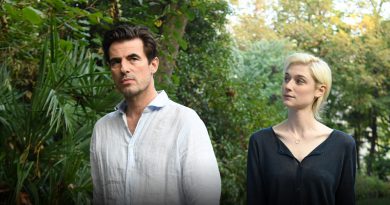Leave The Recent Out Of Biopics
Out of the billions of people Hollywood could adapt for films and television, one of the more recent cinematic trends has it circling back to a specific group: the living.
Why?
Through films like 2016’s I, Tonya and Hidden Figures, this year’s Bohemian Rhapsody (highlighting the various members of British rock band Queen) and next year’s Elton John biopic Rocket Man, audiences are beginning to see various versions of people they’ve already known well. Most of these films have been successful, with the former two receiving Academy Award nominations and Rami Malek receiving rave reviews for his portrayal of Queen’s eccentric frontman Freddie Mercury.
However, despite these successes, these films run the risk of tainting the audience’s view of the subject matter. In seeing an actor they know well, especially in the case of a Margot Robbie or Taraji P. Henson, playing a figure they were able to observe in their actuality, they may begin to view that initial subject differently, risking ruining a potentially honest view of that subject.
Take Bohemian Rhapsody. In its initial stages, the film (then starring Sacha Baron Cohen) was set to heavily focus on the darker elements of Mercury, including his rampant drug use and his exploration of his sexuality. However, according to Cohen, the surviving members of the band vetoed the idea, believing it best to explore the aftermath of Mercury’s death and how the band pushed forward afterwards. After “artistic differences,” Cohen left the film, leaving the band and studio in charge of its direction.
The film that came out of that didn’t fully follow that structure, but it didn’t necessarily portray the full version that is the band Queen (likely due to the band involved, with Brian May and Roger Taylor receiving executive producer credits). That, along with intense production difficulties, led to the film’s mixed reviews, where it currently sits at a 53 percent on Rotten Tomatoes.
That’s not to say all of these portrayals are bad. FX’s American Crime Story and Netflix’s The Crown are largely detached from the people they’re portraying, yet both have been critically acclaimed and have won numerous Emmys. And Spotlight, the journalism drama focused on the Boston Globe’s investigation into sexual abuse in the Roman Catholic Church, won Best Picture at the 2016 Academy Awards.
But even with these successes, one has to wonder if any of these are necessarily necessary. We have the history before us — we saw the O. J. Simpson trial, we watched the Tonya Harding drama. We witnessed these events occur before our eyes very recently, so the need for film adaptations aren’t very apparent.
That’s not to say we don’t need them. It’s important to portray the events of the past to better visualize them for future generations. But, for now, the events of the very recent past would be better served by live video of them — not drama.




